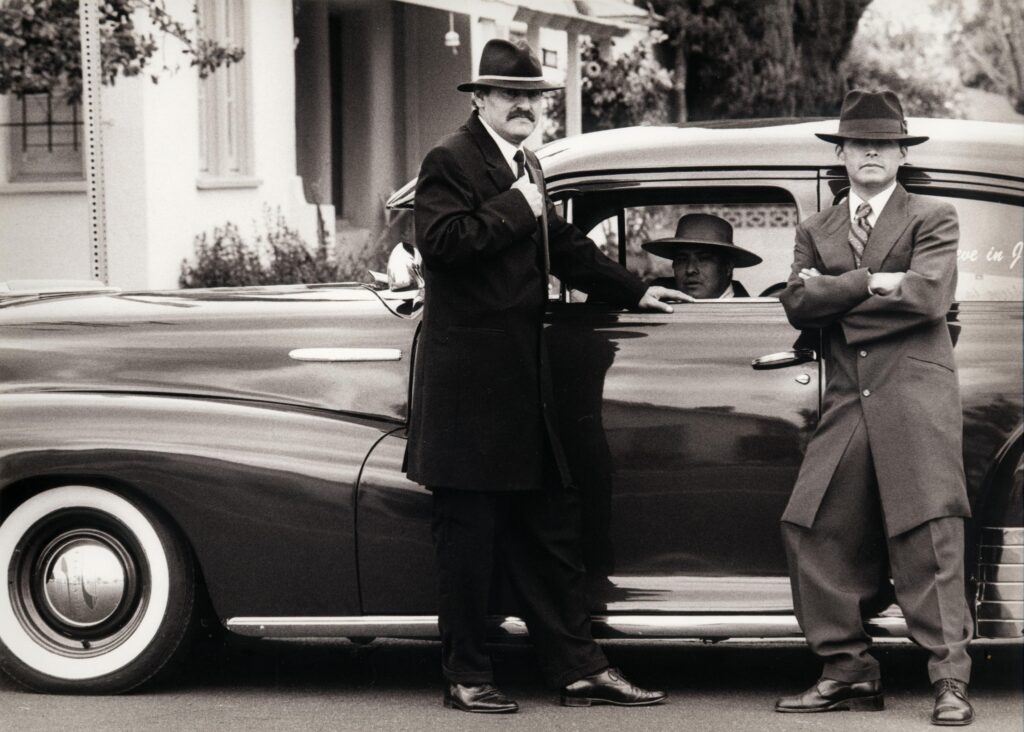Italian mob movies have long captivated audiences with their intense narratives, complex characters, and exploration of organized crime’s intricate world. These films offer a window into the clandestine operations of the Mafia, blending historical events with dramatic storytelling. In this article, we delve into some of the most compelling Italian mob movies, examining their impact on cinema and culture.
The Godfather Trilogy: A Cinematic Masterpiece
Francis Ford Coppola’s “The Godfather” trilogy stands as a monumental achievement in film history. The saga chronicles the Corleone family’s rise and fall within the American Mafia, offering a profound exploration of power, loyalty, and betrayal.
The Godfather (1972)
The inaugural film introduces us to Vito Corleone, portrayed by Marlon Brando, as the patriarch of a powerful crime family. The narrative follows his son, Michael Corleone (Al Pacino), as he reluctantly becomes embroiled in the family’s illicit activities. The film’s portrayal of the Mafia’s inner workings set a new standard for the genre.
The Godfather Part II (1974)
This sequel serves as both a prequel and continuation, juxtaposing Vito’s early life with Michael’s consolidation of power. Robert De Niro’s portrayal of young Vito earned him an Academy Award, highlighting the film’s critical acclaim.
The Godfather Part III (1990)
The final installment sees an aging Michael Corleone striving to legitimize his family’s business while facing challenges from within and outside the organization. Although it received mixed reviews, the film provides a fitting conclusion to the epic saga.
Gomorrah (2008): A Gritty Realism
Directed by Matteo Garrone, “Gomorrah” offers a stark portrayal of the Neapolitan crime syndicate, the Camorra. Based on Roberto Saviano’s investigative book, the film interweaves multiple narratives to depict the pervasive influence of organized crime in Naples. Its unflinching realism earned it the Grand Prix at the Cannes Film Festival.
Salvatore Giuliano (1962): Blurring Fact and Fiction
Francesco Rosi’s “Salvatore Giuliano” examines the life and mysterious death of the titular Sicilian bandit. The film employs a quasi-documentary style, blending real events with dramatization to explore themes of political corruption and the Mafia’s role in post-war Sicily.
Black Souls (2014): A Family’s Descent
“Black Souls” (“Anime nere”) delves into the ‘Ndrangheta, Calabria’s powerful crime syndicate. The story follows three brothers with differing relationships to the Mafia, highlighting the personal and familial consequences of a life entrenched in crime. The film’s nuanced storytelling offers a fresh perspective on the genre.
Suburra (2015): Crime and Politics Intertwined
Set against the backdrop of Rome, “Suburra” explores the intersection of organized crime and political corruption. The narrative follows a gangster known as “Samurai” as he attempts to transform Rome’s waterfront into a gambling paradise, revealing the deep-seated corruption within Italian society.
Il Divo (2008): Political Intrigue
Paolo Sorrentino’s “Il Divo” provides a stylized portrayal of Giulio Andreotti, a seven-time Italian Prime Minister with alleged Mafia ties. The film delves into the murky waters of Italian politics, offering a critical look at power and corruption.
Romanzo Criminale (2005): The Rise of a Gang
“Romanzo Criminale” chronicles the rise and fall of the Banda della Magliana, a real-life criminal organization in Rome during the 1970s and 1980s. The film combines action and drama to depict the gang’s influence over the city’s underworld.
Angela (2002): A Woman’s Perspective
“Angela” offers a unique viewpoint by focusing on a woman involved in the Mafia. The film tells the story of Angela, who manages her husband’s drug business in Palermo, providing insight into the often-overlooked roles women play in organized crime.
FAQs About Italian Mob Movies
- What defines an Italian mob movie?
An Italian mob movie typically centers on organized crime groups of Italian origin, exploring themes of power, loyalty, and betrayal within the Mafia’s context. - Are Italian mob movies based on true stories?
Many draw inspiration from real events and figures, though they often incorporate fictional elements for dramatic effect. - What is the difference between the Mafia and the Camorra?
The Mafia, or Cosa Nostra, originated in Sicily, while the Camorra is based in Naples. Both are organized crime syndicates but operate independently with distinct structures and histories. - Why are Italian mob movies so popular?
Their exploration of complex characters, moral dilemmas, and the allure of the underworld resonates with audiences, offering both entertainment and a glimpse into a hidden society. - Who are some notable directors of Italian mob movies?
Directors like Francis Ford Coppola, Martin Scorsese, Matteo Garrone, and Paolo Sorrentino have significantly contributed to the genre. - What role does family play in these films?
Family dynamics are central, often driving the narrative and highlighting the tension between personal relationships and criminal obligations. - Are there any recent Italian mob movies worth watching?
Films like “Black Souls” (2014) and “Suburra” (2015) offer contemporary takes on the genre, reflecting modern societal issues. - How do Italian mob movies differ from American gangster films?
While both explore organized crime, Italian mob movies often focus on the cultural and political context of Italy, providing a different perspective on the underworld.
Italian mob movies continue to captivate audiences with their rich storytelling and complex characters. Whether depicting historical events or fictional narratives, these films offer a compelling look into the world of organized crime, reflecting broader societal themes and human experiences.


